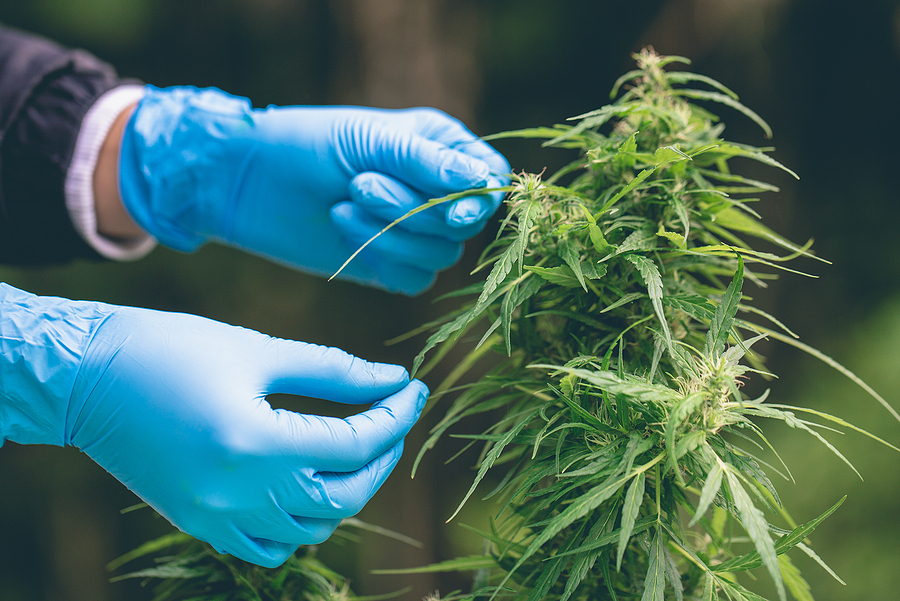The cannabis industry is rapidly evolving in the United States as more states legalize cannabis for medical and/or recreational use. With this shift, it can be difficult to keep up with the changing legal status of cannabis across the country. In this blog post, we’ll take a closer look at cannabis laws across the nation, discuss differences between medical and recreational cannabis use, and explore what the future may hold for cannabis legalization nationwide. We’ll also dive into Indiana’s specific laws regarding marijuana.
By understanding these rules, you can stay informed on your rights and responsibilities when it comes to cannabis consumption. Let’s get started!

Cannabis Laws Across the United States
The marijuana laws across the United States have changed rapidly in recent years, although marijuana is still illegal at the federal level. Each state has adopted different marijuana regulations, resulting in a patchwork of marijuana laws that vary between jurisdictions. Some states are more lenient than others, allowing marijuana use for medicinal purposes while others permit recreational marijuana consumption.
Despite this variance, it’s important to remember that cannabis remains illegal at the federal level and possession and sale of marijuana can lead to serious legal consequences when crossing state lines or entering federal property. With changing public opinion on marijuana, research has indicated that legal marijuana markets can provide economic benefits with proper regulation and taxation. This could be a potential source of revenue for governments struggling with budget deficits due to Covid-19 related loss income.
Differences Between Medical and Recreational Cannabis Use
Cannabis, marijuana, or weed is used for pleasure and medical purposes throughout the world. However, there are significant differences between marijuana used for recreational and medicinal purposes. Generally, marijuana studied for medicinal use contains much higher levels of cannabidiol (CBD), which may only contain a fraction of tetrahydrocannabinol (THC). CBD is known to have calming effects without producing psychoactive effects like THC.
In contrast, marijuana intended for recreational use typically has higher THC levels, which can cause euphoric feelings in users but might also result in adverse effects such as anxiety and paranoia. Furthermore, marijuana used in medical settings is subject to strict legislation, while marijuana purchased on the market outside of medical prescriptions may be illegal even in areas where marijuana has been decriminalized.
CBD Laws in the USA
CBD, or cannabidiol, has become a popular ingredient in health and beauty products because of its potential therapeutic properties. CBD laws in the U.S. can be complicated as CBD is derived from cannabis and hemp plants, both of which have varying levels of legal status in different states. CBD is currently legal as a component of hemp-derived products at a federal level, though some states regulate CBD more than others. Despite this complexity, CBD dispensary businesses have been popping up across the nation due to consumer demand for CBD-infused goods ranging from topicals to edibles. That being said, there still is much confusion about its status so it’s important for potential customers to stay informed on the CBD laws in their own state before making decisions.
Indiana Laws Regarding Marijuana
Indiana laws regarding marijuana are relatively restrictive, but changes have been made to reflect a more permissive stance towards cannabis. Marijuana is still considered illegal for recreational use in Indiana; however, recent legislation allows the sale and consumption of products such as CBD oil, which contain tremendously low levels of THC. Possession or consumption of recreational marijuana can result in fines and jail time; nevertheless, this is only true if an individual has more than 30 grams of the drug.
Presently, medical marijuana use is outlawed in Indiana. This year marks a turning point as 13 cannabis-related bills have been introduced to address issues such as the medicinal application of marijuana and decriminalization of possession. Although changes have been made to Indiana’s marijuana laws, it is important for individuals to understand their rights and responsibilities when it comes to cannabis in the state.
If you have been charged with a marijuana crime in Indianapolis, Indiana, don’t wait another moment to get the help you need. Attorney David E. Lewis is an experienced criminal defense lawyer who will fight for your rights and provide you with the best legal counsel available. Contact us today at 317-636-7514 to schedule a meeting, today.
Related Posts:
Can I Get in Trouble for Mailing Weed in Indiana?
Marion County Grants Legal Leniency for Minor Marijuana Offenses
Is it Legal to Buy Marijuana in Illinois and Bring it Back to Indiana?
